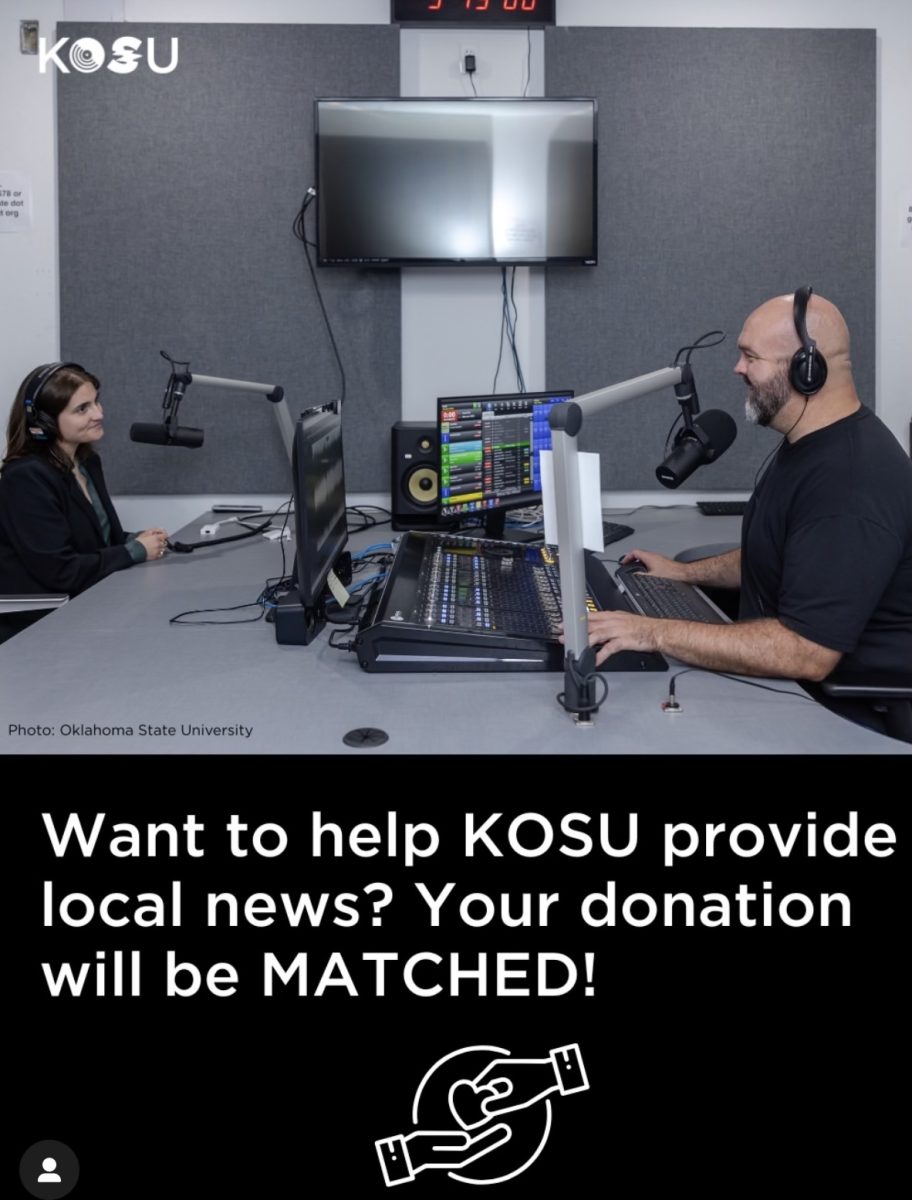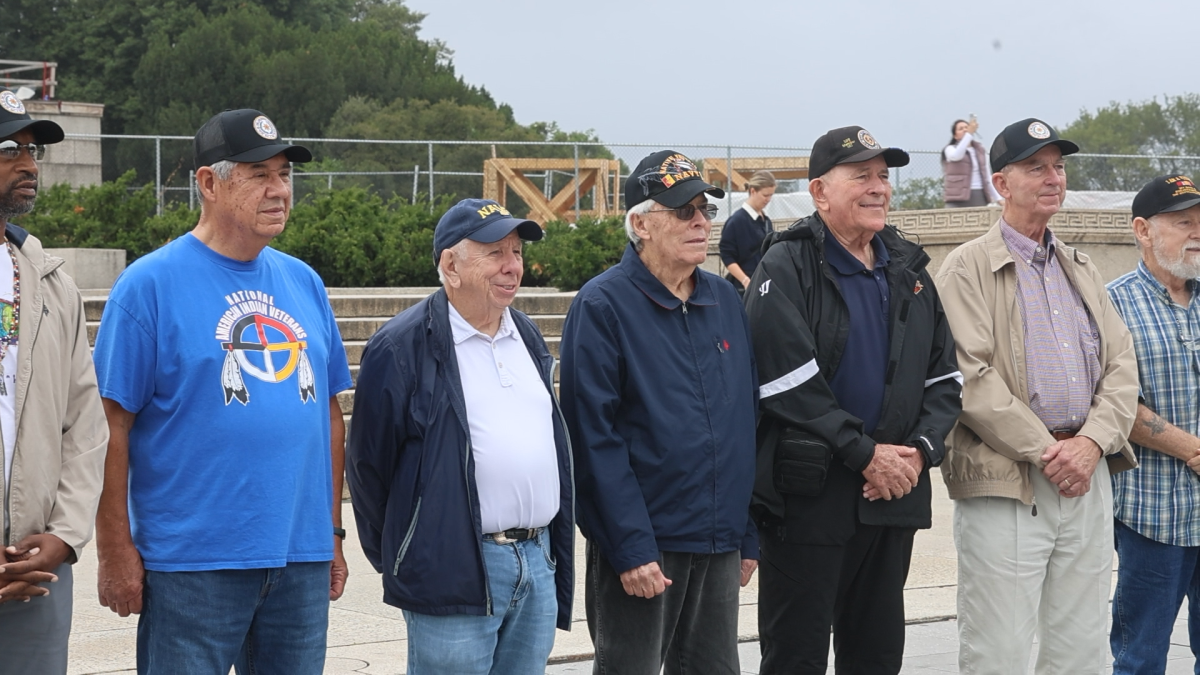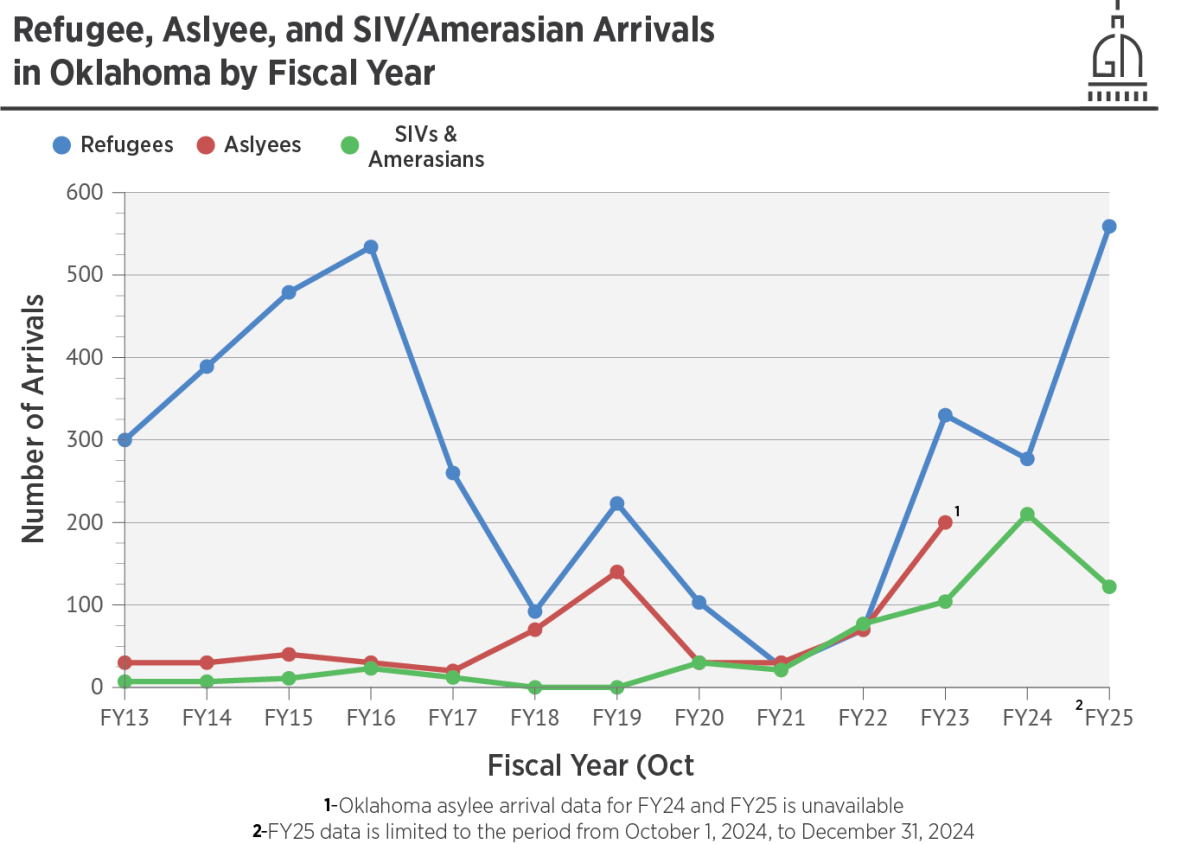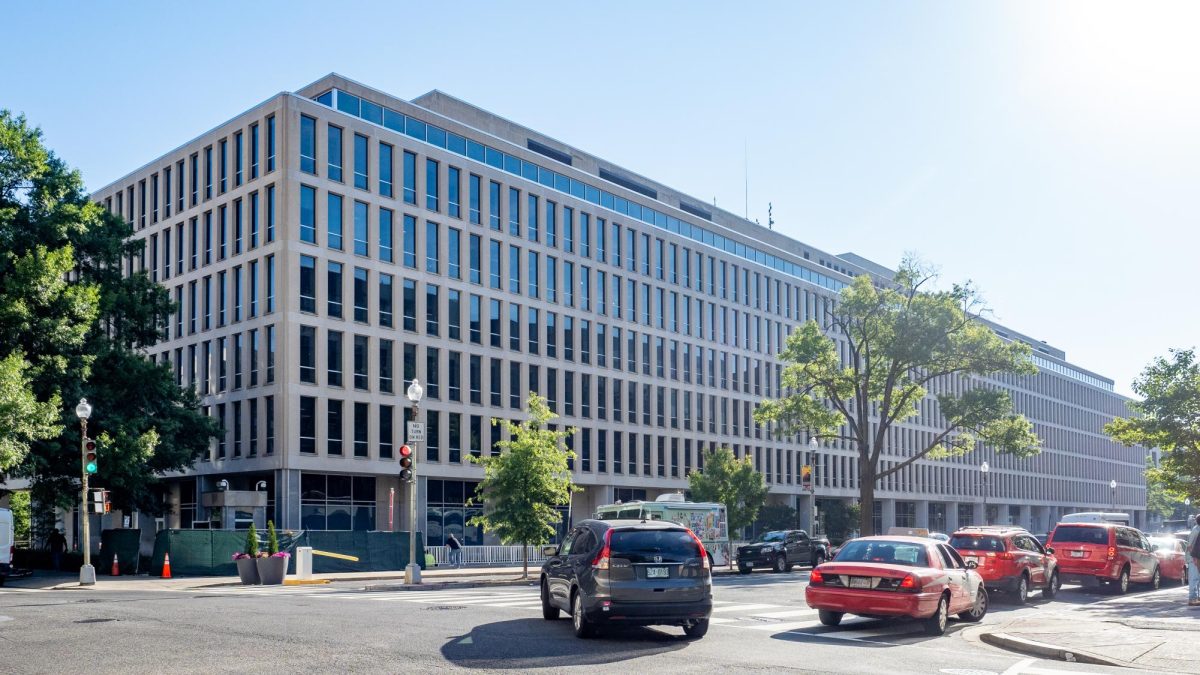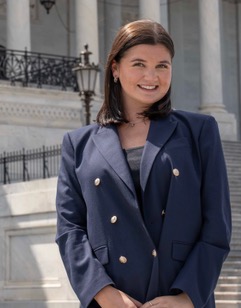As public media stations turn to newsletters, social media and other platforms to urge viewer donations in response to CPB funding cuts, one question remains: What does the future hold for public media in the United States?
Following the $1.1 billion clawback of fiscal 2025 funding to the Corporation for Public Broadcasting, public media stations are turning to fundraising efforts to compensate for the sudden loss of resources typically allocated to news coverage, programming, emergency alert systems, satellite services, music licensing and other essential operations. Nearly $3.5 million would have gone to public stations across Oklahoma.
In a TikTok video, Katherine Maher, President and CEO of NPR, highlighted that public media goes beyond news coverage; its true purpose is to unite and strengthen communities.
“Public media is only or even mostly news. Public media is about what we share as Americans from our towns, to our music traditions, to our sense of wonder and curiosity about our world, down the street and across the ocean,” Maher said. “Your donation, especially a monthly gift, helps keep this work alive.”
Since President Trump signed the rescissions package last week a federal judge ordered the Trump administration to restore funding for Radio Free Europe/Radio Liberty and NPR’s editor-in-chief and acting chief content officer, Edith Chapin, announced her resignation. At the same time, NPR stations across the country launched fundraising efforts to help offset the millions in financial cuts. While many stations face an uncertain future, broadcasters across the country have expressed confidence that this moment won’t signal the end of public radio.
The last time CPB funding was significantly reduced was during President Ronald Reagan’s administration in the 1980s, when Congress cut its budget by 20%. In response, NPR negotiated a $7 million bailout from the Corporation for Public Broadcasting. Rather than providing the money directly to NPR, CPB distributed the funds to local stations, allowing them to decide whether to purchase NPR programming. That decentralized funding model which remained in place up until last week.
Rachel Hubbard, executive director of KOSU said her station along with many other public radio stations are in the middle of an emergency fundraiser to try to stabilize due the funding affects hitting the budget immediately. She said after figuring out the direct hit, then they will begin to work on the medium and long term problems.
“The response since last Friday’s vote has been overwhelmingly positive with people asking how they can support, so we are encouraged,” Hubbard said. “The real question that remains is, what happens after this emergency fundraiser is over? Because it’s not a short term funding loss. This is the elimination of funding for public broadcasting.”
But it is not just the direct funding for the station that is in the unknown, there are specific items that the Corporation for Public Broadcasting has undergirded for decades such as public radio satellite system, music rights
“There are a lot of known unknowns,” Hubbard said. “It is yet to be determined the medium and long term future of those things.”
KOSU reported in a statement that the rescission package will result in a $311,000 deficit in the budget and accounted for approximately 11% of the station’s budget. It said that though this will not cause a shutdown as is feared for some NPR stations in Oklahoma and other states, it will likely cause the loss of services of certain Oklahoma news, most importantly emergency alerts for rural Oklahoma.
“In addition to carrying news from NPR, KOSU has a local news editorial staff of 15 professional journalists who cover a range of topics, including state government, Indigenous affairs, health and more,” the message stated. “It is one of the largest nonprofit newsrooms in the state of Oklahoma and brought you more than 1,000 Oklahoma stories last year alone.”
Stations like RSUTV, an educational television station operated by Rogers State University in Claremore, who have university and private or donor funding which is usually dedicated to primarily administrative or office costs the CPB funding will directly affect the entire station without major restructuring or fundraising.
Station Manager Teri Bowers said, “Our CPB funding is for two years at a time, so we have one year of operating. But I do know there are stations that don’t have it that way. They’re pretty much just like when it’s gone, it’s gone.”
“We are not in a position where we have to do what I would consider an emergency yet,” she said. “I think the safest way to put it is we have a year of operating so we are not in a lights off tomorrow emergency, but it is critical. A year goes by very fast.”
KGOU General Manager, Dick Pryor, in a message to listeners, also encouraged them to donate and acknowledged the supportive messages the station has been getting following the cuts. The station began a two-day relief fundraiser starting this morning.
“Though we face a difficult and unprecedented challenge, we’re inspired by all the calls and messages we’ve received during this time,” the message said. “Thank you for being part of our community. Now is the time to come together to save KGOU so we can continue to serve you.”
Gaylord News is a reporting project of the University of Oklahoma Gaylord College of Journalism and Mass Communication. For more stories by Gaylord News go to GaylordNews.net.

